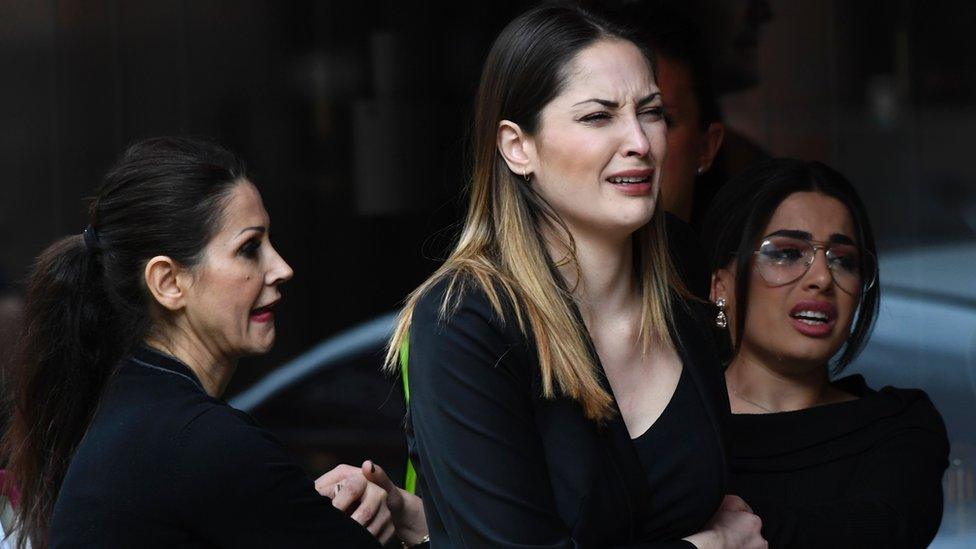Stockholm attack: Sweden holds minute's silence for victims
- Published
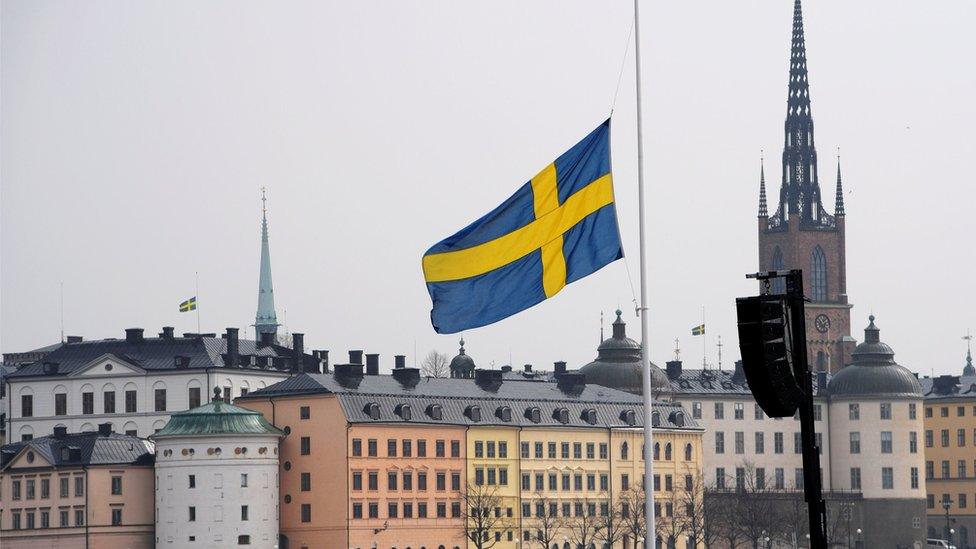
A minute of silence was held as the victims of the attack were remembered
Sweden's prime minister has told the families of the victims of Friday's truck attack they are not alone, after the country held a minute of silence.
Stefan Lofven said all of Sweden's thoughts were with them following a ceremony outside Stockholm City Hall, also attended by the mayor and most of the Swedish royal family.
Four people died and 15 were injured when a hijacked truck was driven into a department store in central Stockholm.
An Uzbek man, 39, is the main suspect.
Addressing those affected by the attack, Mr Lofven added: "You are not alone, we are thinking of you. All of Sweden stands with you."
Police have not released the identities of the victims, but said they were:
Two Swedish nationals - one reported to be an 11-year-old girl
A Briton - named by his family as 41-year-old Chris Bevington
A Belgian woman, said to be a 31-year-old from the city of Halle
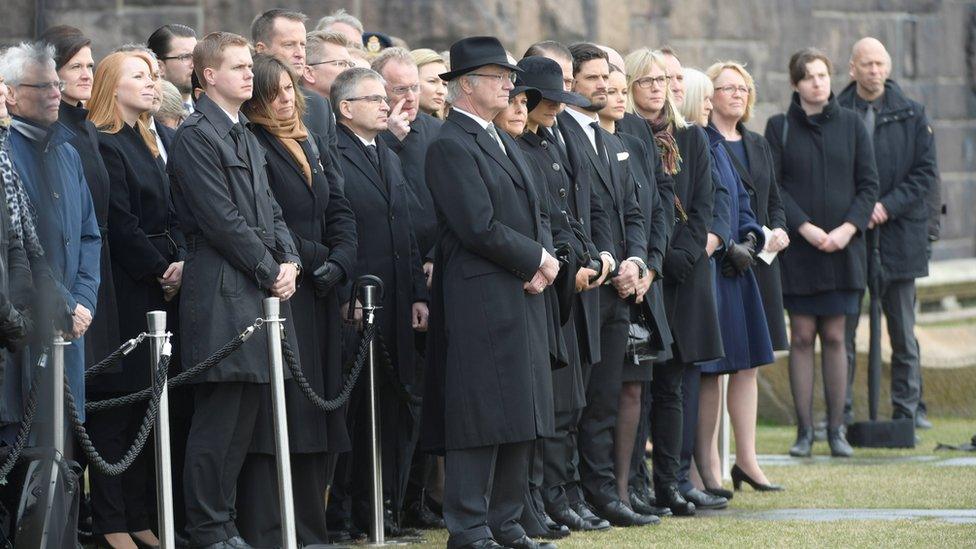
Members of Sweden's royal family and politicians attended the ceremony in Stockholm
The minute's silence was observed throughout the country, including outside Ahlens department store, where people gathered under the rain to pay their respects.
Mayor Karin Wanngard told those gathered at City Hall that Stockholm would "remain an open and tolerant" place.
"We will never give in to violence. We will never let terror prevail," she said.

Tears and determination: By Maddy Savage, BBC News, Stockholm

Sweden's top dignitaries, including the country's King Carl XVI Gustaf and Queen Silvia, both dressed in black, appeared visibly moved as they gathered under dark skies at Stockholm City Hall, where flags remained at half mast.
Outside, crowds of locals gathered to join the minute of silence, many clutching roses. Some admitted that they were nervous about Sweden's future in the wake of the violence.
But others passing the scene were enjoying a lunchtime run, or out walking their dogs along the nearby tree-lined waterfront - a sign of the resolution demonstrated by Stockholmers in recent days.
Locals have quickly returned to the city centre's bustling streets, stores and cafes, determined not to see their lives changed as a result of Friday's attack.

Police are still questioning the main suspect, whose name was confirmed as Rakhmat Akilov to BBC Uzbek.
He had applied for permanent residency in 2014, but this was rejected. In December 2016 he was given four weeks to leave the country, police chief Jonas Hysing told a press conference over the weekend.
The suspect then disappeared, and police began searching for him, Mr Hysing added.
He was known to have expressed sympathy for groups including so-called Islamic State (IS), but had been seen only as a "marginal character", police said.
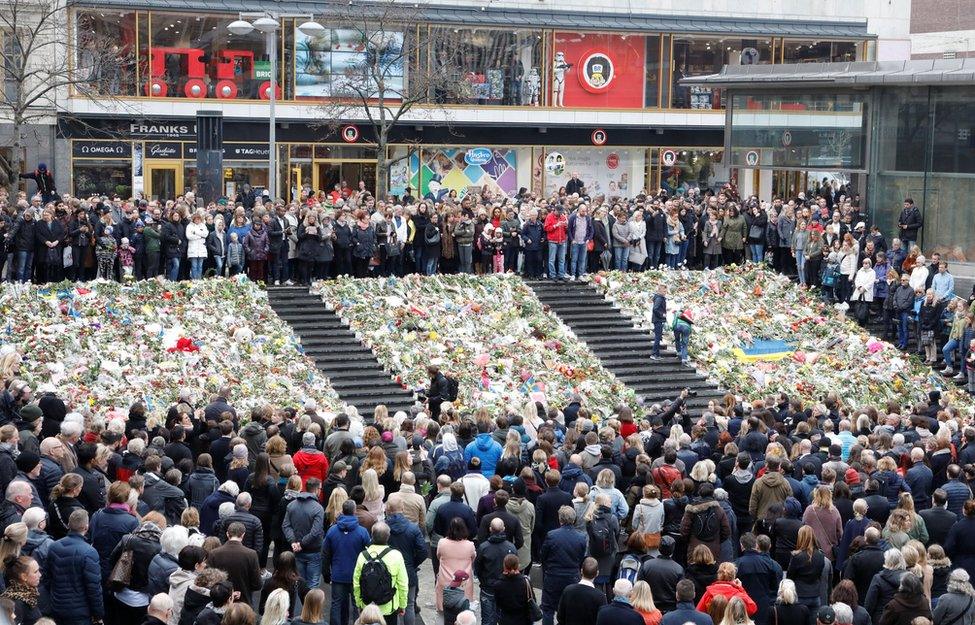
People observe the minute's silence on Sergels Torg, in central Stockholm
On Monday, Sweden's National Police Commissioner Dan Eliasson they were "sure we have the driver of the truck" in custody.
He also revealed there would be a "court process" on Tuesday, but warned the investigation into the attack would take a year.
So far, police have questioned 600 people in connection with the attack, and a second suspect has been placed under formal arrest - although under a lesser charge, Mr Eliasson said.
No group has claimed to be behind the attack.
What we know about the Stockholm truck attack
Sweden has taken in nearly 200,000 refugees and migrants in recent years - more per capita than any other European country.
However, there was a drop in numbers last year after the country introduced new border checks.
Separately, Sweden is believed to have the highest number of IS fighters per capita in Europe.
About 140 of the 300 who went to Syria and Iraq have since returned, leaving the authorities to grapple with how best to reintegrate them into society.
- Published7 June 2018
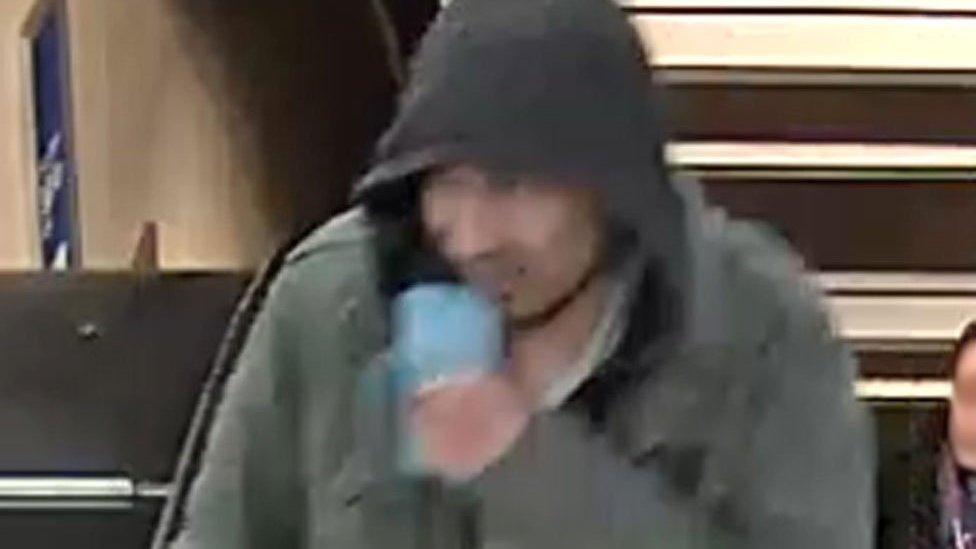
- Published9 April 2017
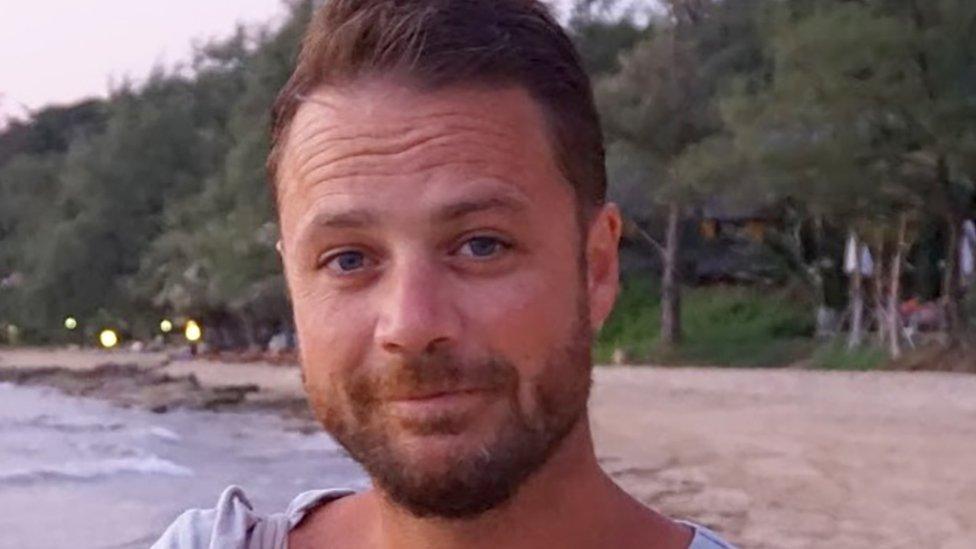
- Published8 April 2017
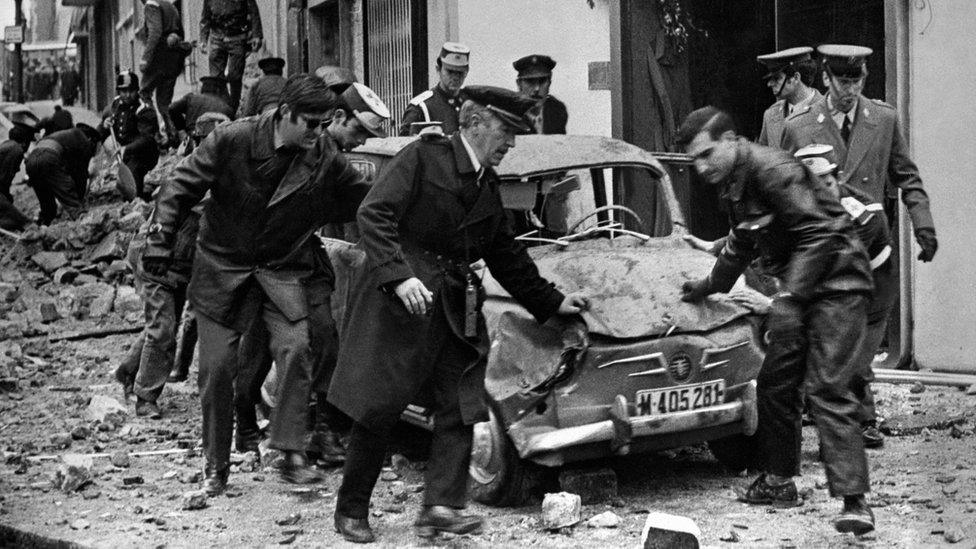
- Published7 April 2017
